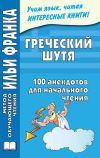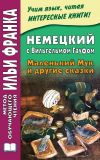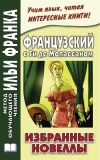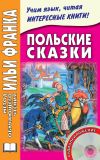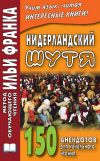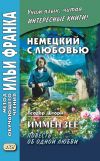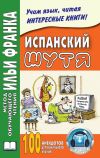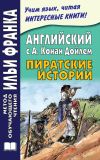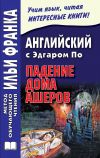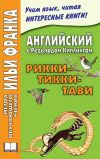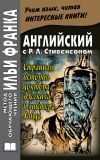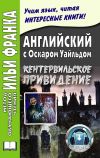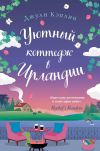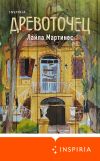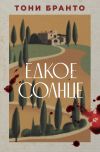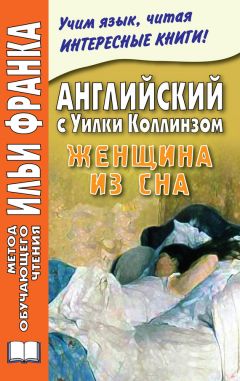
Автор книги: Уильям Коллинз
Жанр: Иностранные языки, Наука и Образование
Возрастные ограничения: +16
сообщить о неприемлемом содержимом
Текущая страница: 2 (всего у книги 16 страниц) [доступный отрывок для чтения: 5 страниц]
“Vourteen mile. Gi’ oi a drap o’ zyder (= Fourteen miles. Give me a drop of cider. Четырнадцать миль. Дайте мне глоток сидра; mile – миля /единица длины = 1609 м/; drop – капля; небольшое количество; глоток).”

For half an hour my wife capers and curvets sideways along the bridle road. I trudge on behind her; and the heartbroken horse halts behind me. Hard by the top of the hill, our melancholy procession passes a Somersetshire peasant at work in a field. I summon the man to approach us; and the man looks at me stolidly, from the middle of the field, without stirring a step. I ask at the top of my voice how far it is to Farleigh Hall. The Somersetshire peasant answers at the top of his voice:
“Vourteen mile. Gi’ oi a drap o’ zyder.”
I translate (for my wife’s benefit) from the Somersetshire language into the English language (я перевожу (для жены) с сомерсетширского языка на английский; benefit – польза, благо). We are fourteen miles from Farleigh Hall (мы /находимся/ в четырнадцати милях от Фарли-Холла); and our friend in the field desires to be rewarded (и наш друг в поле желает быть вознагражденным), for giving us that information, with a drop of cider (за то, что дал нам эти сведения, глотком сидра). There is the peasant, painted by himself (вот крестьянин, изображенный самим собой = вот крестьянин во всей красе/истинный портрет крестьянина; to paint – красить; рисовать, писать /красками/; изображать, описывать)! Quite a bit of character, my dear (боже мой, ну и характер; quite a bit – довольно много; bit – кусочек; небольшое количество; quite a character – большой оригинал, чудак; dear – дорогой; боже мой!, вот те на! /выражает сожаление, удивление, досаду и т. д./)! Quite a bit of character!
Mrs. Fairbank doesn’t view the study of agricultural human nature with my relish (миссис Фэрбанк не разделяет моего интереса к изучению земледельческой человеческой природы = натуры земледельца; to view – осматривать; оценивать, судить /о чем-л/; видеть; study – изучение, исследование; relish – удовольствие, вкус; склонность /к чему-л./). Her fidgety horse will not allow her a moment’s repose (ее беспокойный конь /всё/ не даст ей ни минуты покоя; to allow – позволять, разрешать; давать возможность /чего-л./; repose – отдых, передышка; покой); she is beginning to lose her temper (она начинает терять самообладание; to lose one’s temper – выйти из себя, потерять самообладание, вспылить; temper – нрав, характер; самообладание, сдержанность).


I translate (for my wife’s benefit) from the Somersetshire language into the English language. We are fourteen miles from Farleigh Hall; and our friend in the field desires to be rewarded, for giving us that information, with a drop of cider. There is the peasant, painted by himself! Quite a bit of character, my dear! Quite a bit of character!
Mrs. Fairbank doesn’t view the study of agricultural human nature with my relish. Her fidgety horse will not allow her a moment’s repose; she is beginning to lose her temper.
“We can’t go fourteen miles in this way,” she says (мы не можем пройти четырнадцать миль так/таким образом, – говорит она). “Where is the nearest inn (где ближайшая гостиница)? Ask that brute in the field (спроси того грубияна в поле; brute – животное, тварь; жестокий, глупый или грубый человек)!”
I take a shilling from my pocket and hold it up in the sun (я достаю шиллинг из кармана и выставляю его на солнце; shilling – шиллинг /монета чеканилась до 1971; = 1/20 фунта стерлингов или 12 пенсам/; to hold up – показывать, выставлять).
The shilling exercises magnetic virtues (шиллинг проявляет магнетические свойства; to exercise – упражнять/ся/; осуществлять; проявлять; magnetic – магнитный; магнетический, притягательный; magnet – магнит; virtue – добродетель; сила, действие). The shilling draws the peasant slowly toward me from the middle of the field (шиллинг медленно притягивает крестьянина ко мне с середины поля; to draw – тянуть, тащить; притягивать; slow – медленный). I inform him that we want to put up the horses and to hire a carriage to take us back to Farleigh Hall (я сообщаю ему, что мы хотим /где-нибудь/ оставить лошадей и нанять экипаж, чтобы он отвез нас обратно в Фарли-Холл; to inform – сообщать, информировать; to put up – принимать, давать приют /гостям/; останавливаться, размещаться /где-л./; to put – класть; помещать, размещать; carriage – экипаж; карета; коляска; to take – брать; доставлять, отводить, отвозить /кого-л., что-л./). Where can we do that (где мы можем это сделать)? The peasant answers (with his eye on the shilling) (крестьянин отвечает со взором на шиллинге = не сводя глаз с шиллинга; eye – глаз; взгляд, взор):
“At Oonderbridge, to be zure (= At Underbridge, to be sure. В Андербридже, конечно; under – под, ниже; bridge – мост; sure – уверенный; несомненный, бесспорный).”
“Is it far to Underbridge (далеко до Андербриджа)?”

“We can’t go fourteen miles in this way,” she says. “Where is the nearest inn? Ask that brute in the field!”
I take a shilling from my pocket and hold it up in the sun.
The shilling exercises magnetic virtues. The shilling draws the peasant slowly toward me from the middle of the field. I inform him that we want to put up the horses and to hire a carriage to take us back to Farleigh Hall. Where can we do that? The peasant answers (with his eye on the shilling):
“At Oonderbridge, to be zure.” (At Underbridge, to be sure.)
“Is it far to Underbridge?”
The peasant repeats, “Var to Oonderbridge (крестьянин повторяет: «Далеко ли до Андербриджа?»)?” – and laughs at the question (и смеется над этим вопросом). “Hoo-hoo-hoo!” (Underbridge is evidently close by – if we could only find it.) («Ого-го!» – Андербридж, очевидно, находится поблизости – если мы только сможем его найти; hoo – ого-го!, ау! /выражение удивления, радости или призыва/; evident – очевидный, явный) “Will you show us the way, my man (не покажете ли нам дорогу, любезный: «мой человек»; man – человек, мужчина; /разг./ приятель, милый)?” “Will you gi’ oi a drap of zyder (а вы дадите мне глоток сидра)?” I courteously bend my head, and point to the shilling (я учтиво наклоняю голову и указываю на шиллинг; courteous – вежливый, учтивый, любезный; court – двор /при правителе/; to bend – гнуть/ся/, сгибать/ся/; наклонять/ся/). The agricultural intelligence exerts itself (земледельческий ум проявляет себя; intelligence – ум, интеллект; умственные способности; to exert – напрягать /силы/; прилагать /усилия/; проявлять). The peasant joins our melancholy procession (крестьянин присоединяется к нашей печальной процессии). My wife is a fine woman, but he never once looks at my wife (моя жена красивая женщина, но он ни разу не смотрит на нее; fine – прекрасный, превосходный; never – никогда; ни разу; once – /один/ раз; однажды) – and, more extraordinary still, he never even looks at the horses (и, что еще удивительнее, он ни разу даже не смотрит на лошадей; extraordinary – необычайный, странный; удивительный; still – еще; все же). His eyes are with his mind (его глаза следуют за мыслью; mind – ум, разум; мысли; стремление) – and his mind is on the shilling (а его мысль /направлена/ на шиллинг).

The peasant repeats, “Var to Oonderbridge?” – and laughs at the question. “Hoo-hoo-hoo!” (Underbridge is evidently close by – if we could only find it.) “Will you show us the way, my man?” “Will you gi’ oi a drap of zyder?” I courteously bend my head, and point to the shilling. The agricultural intelligence exerts itself. The peasant joins our melancholy procession. My wife is a fine woman, but he never once looks at my wife – and, more extraordinary still, he never even looks at the horses. His eyes are with his mind – and his mind is on the shilling.
We reach the top of the hill (мы достигаем вершины холма) – and, behold on the other side, nestling in a valley (и вот, на другой стороне, укрывшись в долине; to behold – увидеть, заметить; созерцать; behold! – вот!, смотри!; to nestle – уютно устроиться; ютиться; укрываться; nest – гнездо), the shrine of our pilgrimage, the town of Underbridge (находится цель нашего паломничества – город Андербридж; shrine – святыня, место поклонения; pilgrim – пилигрим, паломник; странник)! Here our guide claims his shilling (здесь наш проводник требует свой шиллинг; to claim – требовать, заявлять о своих правах /на что-л./), and leaves us to find out the inn for ourselves (и покидает нас /предоставив/ нам самим искать гостиницу; to leave – уходить; покидать, оставлять). I am constitutionally a polite man (я по характеру вежливый человек; constitutionally – сообразно телосложению, складу ума, характеру; constitution – конституция, телосложение; склад ума; характер). I say “Good morning” at parting (я говорю «Всего доброго!» на прощание; good morning! – доброе утро!; до свидания!, всего доброго! /при расставании утром/; parting – расставание; прощание; to part – разделяться; разлучаться, расставаться). The guide looks at me with the shilling between his teeth to make sure that it is a good one (проводник смотрит на меня с шиллингом между зубами = пробуя шиллинг на зуб, чтобы убедиться, что он настоящий; tooth – зуб; good – хороший; настоящий, неподдельный). “Marnin!” he says savagely (и вам! – говорит он грубо; marnin = morning; savage – дикий; жестокий, свирепый; грубый) – and turns his back on us, as if we had offended him (и поворачивает свою спину на нас = поворачивается к нам спиной, как будто мы его обидели; to offend – обижать, оскорблять). A curious product, this, of the growth of civilization (занятный же плод приносит развитие цивилизации; curious – любопытный; чудной, курьезный; product – продукт, изделие; плод, результат; growth – рост, развитие; to grow – расти, произрастать). If I didn’t see a church spire at Underbridge (если бы я не видел церковный шпиль в Андербридже; church – церковь; spire – стрелка /злака/; росток; шпиль; остроконечная верхушка), I might suppose that we had lost ourselves on a savage island (то мог бы подумать, что мы потерялись: «потеряли себя» на диком острове; to suppose – думать, /пред/полагать).


We reach the top of the hill – and, behold on the other side, nestling in a valley, the shrine of our pilgrimage, the town of Underbridge! Here our guide claims his shilling, and leaves us to find out the inn for ourselves. I am constitutionally a polite man. I say “Good morning” at parting. The guide looks at me with the shilling between his teeth to make sure that it is a good one. “Marnin!” he says savagely – and turns his back on us, as if we had offended him. A curious product, this, of the growth of civilization. If I didn’t see a church spire at Underbridge, I might suppose that we had lost ourselves on a savage island.
II
Arriving at the town, we had no difficulty in finding the inn (прибыв в город, мы без труда нашли гостиницу: «не имели трудности в нахождении гостиницы»; difficult – сложный, трудный). The town is composed of one desolate street (город состоит из одной безлюдной улицы; to compose – сочинять, создавать /лит. или муз. произведение/; составлять /из частей/; desolate – заброшенный; пустынный, безлюдный); and midway in that street stands the inn (и в середине той улицы стоит гостиница; midway – на полпути, на полдороге) – an ancient stone building sadly out of repair (старинное каменное здание в печальном состоянии: «печально вне /хорошего/ состояния»; ancient – древний; старинный, старый; to build – строить, сооружать; создавать; repair – ремонт; состояние /здания и т. д./; годность, исправность). The painting on the sign-board is obliterated (картинка на вывеске стерта; painting – живопись; картина; изображение; sign – знак; вывеска; board – доска; to obliterate – стирать, удалять, изглаживать). The shutters over the long range of front windows are all closed (ставни на длинном ряде фасадных окон = на окнах по длинному фасаду все закрыты; shutter – ставень; to shut – закрывать, затворять; range – ряд, линия, вереница; front – передний; front – передняя сторона; фасад). A cock and his hens are the only living creatures at the door (петух и его куры – единственные живые существа у двери). Plainly, this is one of the old inns of the stage-coach period (/всё/ ясно, это одна из старых гостиниц эпохи дилижансов; plainly – ясно, очевидно; plain – ясный, очевидный; stage-coach – почтовая карета, дилижанс; stage – станция, остановка; coach – почтовая или пассажирская карета, экипаж; period – период; эпоха, время), ruined by the railway (разоренная железной дорогой; to ruin – разрушать; разорять; rail – рельс). We pass through the open arched doorway (мы проходим сквозь открытый сводчатый проем; arched – арочный, сводчатый; arch – арка; свод; doorway – дверной проем), and find no one to welcome us (и не находим никого, кто бы нас встретил; to welcome – приветствовать /гостя/; радушно принимать; встречать).

Arriving at the town, we had no difficulty in finding the inn. The town is composed of one desolate street; and midway in that street stands the inn – an ancient stone building sadly out of repair. The painting on the sign-board is obliterated. The shutters over the long range of front windows are all closed. A cock and his hens are the only living creatures at the door. Plainly, this is one of the old inns of the stage-coach period, ruined by the railway. We pass through the open arched doorway, and find no one to welcome us.
We advance into the stable yard behind (мы проходим в конный двор позади; to advance – двигать/ся/ вперед); I assist my wife to dismount (я помогаю жене спешиться) – and there we are in the position (и тут мы попадаем в положение) already disclosed to view at the opening of this narrative (/которое/ уже было описано: «открыто для обозрения» в начале этого рассказа; to view – осматривать; видеть; view – вид; осмотр, обозрение; to disclose – раскрывать, открывать; показывать; opening – отверстие, брешь; начало; вступление). No bell to ring (звонка /чтобы позвонить/ нет). No human creature to answer when I call (ни одна живая душа: «человеческое существо» не отвечает, когда я зову). I stand helpless, with the bridles of the horses in my hand (я стою, беспомощный, держа в руке поводья лошадей; help – помощь). Mrs. Fairbank saunters gracefully down the length of the yard (миссис Фэрбанк грациозно прогуливается по двору: «вниз по длине двора»; to saunter – прогуливаться, прохаживаться; grace – грация, изящество; length – длина; протяженность) and does – what all women do, when they find themselves in a strange place (и делает /то/, что все женщины делают, когда они оказываются в незнакомом месте). She opens every door as she passes it, and peeps in (она открывает каждую дверь, когда проходит мимо нее, и заглядывает внутрь; to peep – заглядывать; смотреть сквозь маленькое отверстие; подглядывать). On my side, I have just recovered my breath (что касается меня: «на моей стороне», я только что перевел дыхание; to recover one’s breath – отдышаться, перевести дух/дыхание; to recover – вновь обретать; восстанавливать), I am on the point of shouting for the hostler for the third and last time (и собираюсь криком позвать конюха в третий и последний раз; to be on the point of doing smth. – собираться сделать что-л.: «быть на грани делания чего-л.»; point – точка; порог; край; грань; time – время; раз, случай), when I hear Mrs. Fairbank suddenly call to me (когда слышу, как миссис Фэрбанк вдруг зовет меня; suddenly – вдруг, внезапно; sudden – внезапный, неожиданный):
“Percy! come here (Перси! иди сюда)!”

We advance into the stable yard behind; I assist my wife to dismount – and there we are in the position already disclosed to view at the opening of this narrative. No bell to ring. No human creature to answer when I call. I stand helpless, with the bridles of the horses in my hand. Mrs. Fairbank saunters gracefully down the length of the yard and does – what all women do, when they find themselves in a strange place. She opens every door as she passes it, and peeps in. On my side, I have just recovered my breath, I am on the point of shouting for the hostler for the third and last time, when I hear Mrs. Fairbank suddenly call to me:
“Percy! come here!”
Her voice is eager and agitated (ее голос нетерпелив и взволнован; eager – жаждущий /чего-л/; нетерпеливый; to agitate – волновать, возбуждать). She has opened a last door at the end of the yard (она открыла последнюю дверь в конце двора), and has started back from some sight which has suddenly met her view (и отпрянула/отскочила назад от какого-то зрелища, которое внезапно предстало ее взору: «встретило ее взгляд»; view – вид; видимость, поле зрения). I hitch the horses’ bridles on a rusty nail in the wall near me, and join my wife (я привязываю поводья к ржавому гвоздю в стене возле меня и присоединяюсь к жене; to hitch – закреплять, прикреплять; привязывать; rusty – ржавый, заржавленный; rust – ржавчина; to join – соединять; присоединяться /к кому-л./). She has turned pale (она побледнела: «стала бледной»; to turn – поворачивать/ся/; становиться, делаться), and catches me nervously by the arm (и нервно хватает меня за руку; to catch – ловить; хватать).
“Good heavens!” she cries (боже мой: «благие небеса»! – восклицает она); “look at that (посмотри на это)!”
I look – and what do I see (я смотрю – и что же я вижу)? I see a dingy little stable, containing two stalls (я вижу грязную маленькую конюшню, в которой два стойла; dingy – тусклый; грязный; to contain – содержать, включать в себя). In one stall a horse is munching his corn (в одном стойле лошадь жует овес; to munch – жевать; грызть; corn – зерно, зерновые хлеба /в Англии – пшеница, в Шотландии и Сев. Ирландии – овес/). In the other a man is lying asleep on the litter (в другом – человек лежит спящим = спит на соломе; litter – подстилка для скота /из соломы, сена/).

Her voice is eager and agitated. She has opened a last door at the end of the yard, and has started back from some sight which has suddenly met her view. I hitch the horses’ bridles on a rusty nail in the wall near me, and join my wife. She has turned pale, and catches me nervously by the arm.
“Good heavens!” she cries; “look at that!”
I look – and what do I see? I see a dingy little stable, containing two stalls. In one stall a horse is munching his corn. In the other a man is lying asleep on the litter.
A worn, withered, woebegone man in a hostler’s dress (измученный, изможденный, печального вида человек в одежде конюха; worn – изношенный, потертый; усталый, изможденный; to wear – носить /одежду/; изнашивать/ся/; истощать/ся/; изнурять; to wither – вянуть, сохнуть; иссушать, лишать сил или свежести; woebegone – удрученный, горестный /о виде человека/; woe – горе, печаль; dress – платье, одежда). His hollow wrinkled cheeks (его впалые морщинистые щеки; hollow – пустой; впалый, ввалившийся; to wrinkle – морщить/ся/, покрывать/ся/ морщинами, складками; wrinkle – морщина; складка), his scanty grizzled hair (редкие седые волосы; scanty – скудный, недостаточный; to grizzle – делать/ся/ серым; седеть; grizzle – серый цвет; седина), his dry yellow skin (сухая желтая кожа), tell their own tale of past sorrow or suffering (красноречиво свидетельствуют: «рассказывают свою собственную историю» о пережитом горе или страдании; tale – рассказ; история; past – прошлый, былой; sorrow – горе, печаль, скорбь; suffering – страдание, мука; to suffer – страдать). There is an ominous frown on his eyebrows (его брови угрюмо сдвинуты; ominous – зловещий, угрожающий; frown – сдвинутые, насупленные брови; хмурый, недовольный вид; eye – глаз; brow – бровь) – there is a painful nervous contraction on the side of his mouth (мучительное нервное сокращение на половине рта = рот перекошен от какого-то тягостного переживания; painful – болезненный; мучительный, тягостный; pain – боль; contraction – сокращение, сжатие). I hear him breathing convulsively when I first look in (я слышу, как он судорожно дышит, когда впервые заглядываю внутрь /конюшни/); he shudders and sighs in his sleep (он вздрагивает и вздыхает во сне). It is not a pleasant sight to see (это неприятное зрелище, чтобы видеть = на это зрелище неприятно смотреть), and I turn round instinctively to the bright sunlight in the yard (и я инстинктивно поворачиваюсь к яркому солнечному свету во дворе; to turn round – оборачиваться; поворачиваться; round – вокруг, кругом). My wife turns me back again in the direction of the stable door (моя жена опять поворачивает меня обратно /по направлению/ к двери конюшни).
“Wait!” she says (подожди! – говорит она; to wait – ждать, ожидать). “Wait! he may do it again (подожди! он может сделать это снова).”

A worn, withered, woebegone man in a hostler’s dress. His hollow wrinkled cheeks, his scanty grizzled hair, his dry yellow skin, tell their own tale of past sorrow or suffering. There is an ominous frown on his eyebrows – there is a painful nervous contraction on the side of his mouth. I hear him breathing convulsively when I first look in; he shudders and sighs in his sleep. It is not a pleasant sight to see, and I turn round instinctively to the bright sunlight in the yard. My wife turns me back again in the direction of the stable door.
“Wait!” she says. “Wait! he may do it again.”
“Do what again (сделать что снова)?”
“He was talking in his sleep, Percy, when I first looked in (он говорил во сне, Перси, когда я заглянула в первый раз). He was dreaming some dreadful dream (ему снился какой-то страшный сон; to dream – видеть сон; видеть во сне; dread – /благоговейный/ страх; ужас; dream – сон, сновидение). Hush! he’s beginning again (тише! он начинает опять; hush – тишина, молчание; тише!, тс!).”
I look and listen (я смотрю и слушаю). The man stirs on his miserable bed (человек ворочается на своем жалком ложе; miserable – жалкий; убогий, скверный; bed – кровать, постель; ложе). The man speaks in a quick, fierce whisper through his clinched teeth (он говорит быстрым, горячим шепотом сквозь стиснутые зубы; fierce – свирепый, лютый; горячий, пылкий; to clinch – заклепывать, закреплять скобой; захватить противника /в боксе/; clinch – зажим; скоба). “Wake up! Wake up, there! Murder (проснитесь! проснитесь же! убийство; to wake – просыпаться; будить)!”
There is an interval of silence (наступает минута тишины; interval – промежуток времени; интервал, пауза; silence – тишина; молчание). He moves one lean arm slowly until it rests over his throat (он медленно поднимает одну тощую руку, пока она не ложится на его горло; to move – /пере/двигать/ся/; шевелить/ся/; lean – худой, тощий; to rest – отдыхать; лежать, покоиться; класть, прислонять); he shudders, and turns on his straw (он вздрагивает и поворачивается /на бок/ на соломе); he raises his arm from his throat (он отнимает руку от горла; to raise – поднимать), and feebly stretches it out (и слабо протягивает ее = роняет; to stretch – растягивать/ся/; тянуть/ся); his hand clutches at the straw on the side toward which he has turned (его рука вцепляется в солому с того боку, на который он повернулся; to clutch – схватиться; сжать, стиснуть); he seems to fancy that he is grasping at the edge of something (похоже, ему кажется, что он держится за край чего-то; to seem – казаться, представляться; to fancy – воображать, представлять себе; полагать; fancy – фантазия, воображение; to grasp – хватать/ся/, сжимать /рукой/).

“Do what again?”
“He was talking in his sleep, Percy, when I first looked in. He was dreaming some dreadful dream. Hush! he’s beginning again.”
I look and listen. The man stirs on his miserable bed. The man speaks in a quick, fierce whisper through his clinched teeth. “Wake up! Wake up, there! Murder!”
There is an interval of silence. He moves one lean arm slowly until it rests over his throat; he shudders, and turns on his straw; he raises his arm from his throat, and feebly stretches it out; his hand clutches at the straw on the side toward which he has turned; he seems to fancy that he is grasping at the edge of something.
I see his lips begin to move again (я вижу, как его губы снова начинают шевелиться); I step softly into the stable (я тихонько вхожу в стойло; to step – шагать, ступать; softly – мягко; тихо, бесшумно; soft – мягкий; тонкий, едва уловимый; тихий); my wife follows me, with her hand fast clasped in mine (жена следует за мной, с рукой, крепко сжатой в моей = крепко сжав мою руку; fast – быстро; крепко, сильно; to clasp – застегивать /на пряжку и т. д./; сжимать; пожимать). We both bend over him (мы оба склоняемся над ним; both – оба, обе; и тот и другой). He is talking once more in his sleep (он опять говорит во сне; once more – еще раз, снова) – strange talk, mad talk, this time (странные слова, безумные слова на этот раз; talk – разговор, беседа; mad – сумасшедший, ненормальный; безумный).
“Light gray eyes” (we hear him say) (светло-серые глаза, – слышим мы, как он говорит; light – светлый, светлого цвета; light – свет), “and a droop in the left eyelid (припухшее левое веко; droop – наклон, склон; to droop – наклонять/ся/, свисать; закрываться /о глазах/; lid – крышка; веко) – flaxen hair, with a gold-yellow streak in it (соломенные волосы с золотистым отливом; flaxen – льняной; светло-желтый, соломенный /о волосах/; flax – лен; yellow – желтый; золотистый; streak – полоска; жилка, прожилка) – all right, mother (хорошо: «все верно/правильно», мама; all right! – ладно!, хорошо!, идет!)! fair, white arms with a down on them (красивые белые руки с пушком /на них/; down – пух, пушок) – little, lady’s hand, with a reddish look round the fingernails (маленькая дамская кисть с красноватыми ногтями: «с красноватым видом вокруг ногтей пальцев»; reddish – красноватый; red – красный; look – взгляд; вид, наружность; fingernail – ноготь пальца /руки/; finger – палец руки; nail – ноготь) – the knife – the cursed knife (нож… проклятый нож; to curse – проклинать; curse – проклятие) – first on one side, then on the other (сначала с одной стороны, потом с другой) – aha, you she-devil (ах ты чертовка/дьяволица; devil – дьявол, черт, бес)! where is the knife (где нож)?”

I see his lips begin to move again; I step softly into the stable; my wife follows me, with her hand fast clasped in mine. We both bend over him. He is talking once more in his sleep – strange talk, mad talk, this time.
“Light gray eyes” (we hear him say), “and a droop in the left eyelid – flaxen hair, with a gold-yellow streak in it – all right, mother! fair, white arms with a down on them – little, lady’s hand, with a reddish look round the fingernails – the knife – the cursed knife – first on one side, then on the other – aha, you she-devil! where is the knife?”
He stops and grows restless on a sudden (он замолкает и вдруг делается беспокойным; to stop – останавливать/ся/; замолкать; to grow – расти; делаться, становиться; sudden – /уст./ неожиданность; sudden – внезапный, неожиданный). We see him writhing on the straw (мы видим, как он корчится на соломе; to writhe – скручивать, сплетать; корчиться /от боли/). He throws up both his hands and gasps hysterically for breath (он вскидывает обе руки и судорожно ловит ртом воздух; to throw up – подбрасывать; вскидывать; to throw – бросать; hysterical – истеричный, истерический; to gasp – дышать с трудом, задыхаться; ловить воздух; breath – дыхание; вздох). His eyes open suddenly (его глаза внезапно открываются). For a moment they look at nothing, with a vacant glitter in them (с минуту они смотрят в никуда: «на ничто» с пустым блеском; vacant – пустой; безучастный, отсутствующий; glitter – яркий блеск, сверкание) – then they close again in deeper sleep (затем снова закрываются в более глубоком сне = и он засыпает еще глубже). Is he dreaming still (он все еще грезит; still – до сих пор; /все/ еще)? Yes; but the dream seems to have taken a new course (да; но сон, похоже, принял новый оборот; course – курс, направление; ход, течение; to take its course – идти своим чередом). When he speaks next, the tone is altered (когда он снова говорит, тон его /голоса/ изменен; next – следующий; затем; снова; tone – тон; интонация, окраска голоса; to alter – изменять/ся/); the words are few – sadly and imploringly repeated over and over again (слов мало – печально и умоляюще /они/ повторяются снова и снова; few – немногие, немного; to implore – умолять, просить). “Say you love me (скажи, что любишь меня)! I am so fond of you (я так люблю тебя; fond – любящий; to be fond of /smb., smth./ – любить /кого-л., что-л./). Say you love me! say you love me!” He sinks into deeper and deeper sleep (он погружается во все более глубокий сон; to sink – тонуть; погружаться; впадать /в какое-л. состояние/), faintly repeating those words (чуть слышно повторяя те слова; faintly – бледно; слабо; едва; faint – слабый; неясный, неотчетливый). They die away on his lips (они замирают на его губах; to die away – ослабевать, постепенно исчезать; замирать, стихать /о звуке, ветре/; to die – умирать; исчезать). He speaks no more (больше он /ничего/ не говорит).

He stops and grows restless on a sudden. We see him writhing on the straw. He throws up both his hands and gasps hysterically for breath. His eyes open suddenly. For a moment they look at nothing, with a vacant glitter in them – then they close again in deeper sleep. Is he dreaming still? Yes; but the dream seems to have taken a new course. When he speaks next, the tone is altered; the words are few – sadly and imploringly repeated over and over again. “Say you love me! I am so fond of you. Say you love me! say you love me!” He sinks into deeper and deeper sleep, faintly repeating those words. They die away on his lips. He speaks no more.
By this time Mrs. Fairbank has got over her terror (к этому времени миссис Фэрбанк поборола свой страх; to get – доставать, получать; попадать /куда-л./; to get over – перелезть /через забор и т. д./; оправиться /от болезни, потрясения/; победить, преодолеть); she is devoured by curiosity now (теперь она снедаема любопытством; to devour – пожирать; поглощать). The miserable creature on the straw has appealed to the imaginative side of her character (несчастное создание на соломе затронуло поэтическую струну ее характера; to appeal – взывать /к кому-л./; волновать, трогать; imaginative – одаренный богатым воображением; творческий; образный; to imagine – воображать, представлять себе; image – образ; изображение; side – сторона, бок; аспект, черта). Her illimitable appetite for romance hungers and thirsts for more (ее безграничная страсть к романтике жаждет большего; limit – граница, предел; appetite – аппетит; вкус, жажда, страсть /к чему-л./; romance – роман; романтика; to hunger – голодать; сильно желать, жаждать; hunger – голод; сильное желание, жажда /чего-л./; to thirst – хотеть пить; жаждать /чего-л./; thirst – жажда; томление, желание /чего-л./). She shakes me impatiently by the arm (она нетерпеливо трясет меня за руку; patient – терпеливый; patience – терпение, терпеливость).
Правообладателям!
Данное произведение размещено по согласованию с ООО "ЛитРес" (20% исходного текста). Если размещение книги нарушает чьи-либо права, то сообщите об этом.Читателям!
Оплатили, но не знаете что делать дальше?